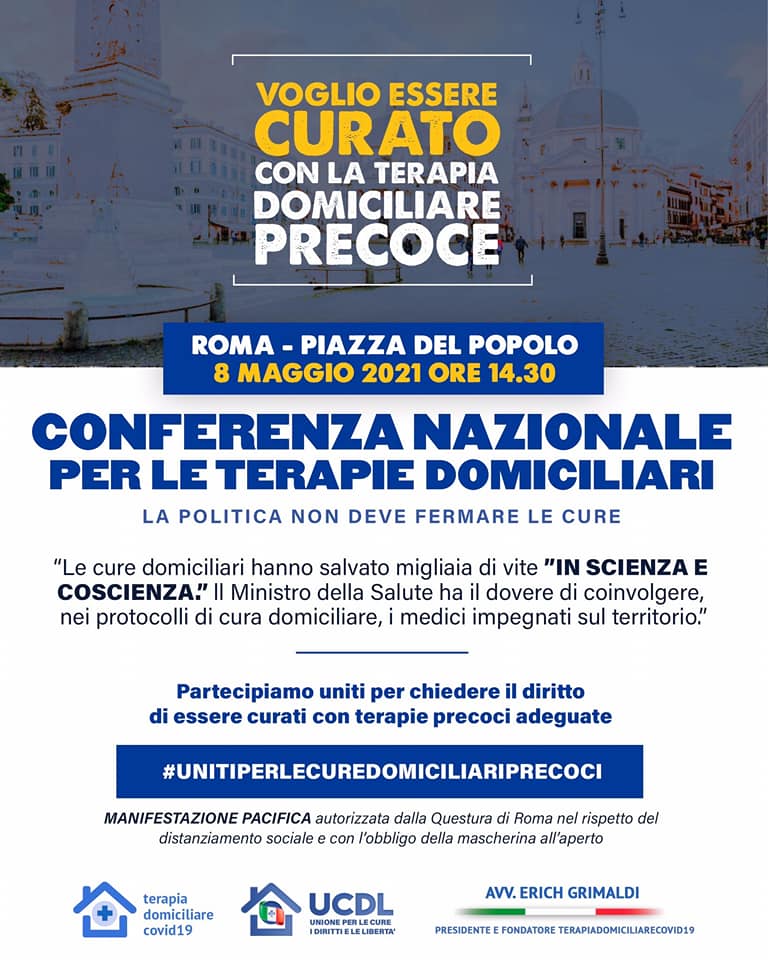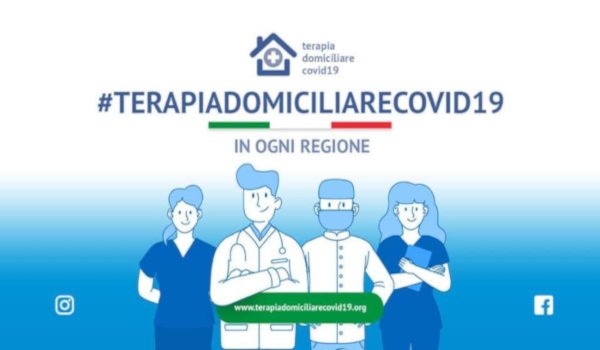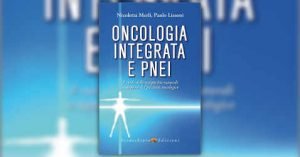Home care, which is saving many lives and sparing hospitalizations for so many patients, still finds obstacles to its recognition by official bodies.
Why all this hostility in considering this Protocol?
Domiciliary covid-19 therapy supported by committee chaired by lawyer Erich Grimaldi
https://www.terapiadomiciliarecovid19.org/ has been applied and disseminated for months by a very large, cohesive and active group of physicians and professionals who help free of charge covid-19 patients, whose only alternative would be the famous tachipirin and watchful waiting.
To know the seriousness and importance of this initiative, which as the months have progressed has increasingly taken on the connotations of a real mission, I refer to Il Riformista's interview of Attorney Grimaldi, creator of the adventure that started with the Facebook group titled 1TP5DOMICILIARYTHERAPYCOVID19 and which to date has precisely 401,140 members.
The group has brought together both sick people and family members of patients who have contracted Covid-19 as well as hundreds of doctors, nurses, psychologists, nutritionists, and anyone who can be helpful in the fight against the virus, providing round-the-clock all-around care, constantly monitoring the progress of the disease.
For a long time, the committee has been in dialogue with Undersecretary Sileri, who seemed ready to seriously consider the results achieved in order to revise treatment protocols together and, at last, move beyond the indications of "watchful waiting and paracetamol."
It would be a pity if this experience, gained over a whole year, remained limited to only a few people, so Attorney Grimaldi has gone to great lengths to bring it to the attention of public health authorities, so much so that a week ago he participated in an important video call meeting with Agenas (the National Agency for Regional Health Services), which is responsible for drafting care protocols as has already been the case for the one dated November 2020.
This meeting was an opportunity to concretize the possibility of working together on a new national protocol that would take into account precisely the field experiences made by the referring physicians.
Professor Louis Cavanna and Dr. Andrea Mangiagalli, supported by the lawyer Erich Grimaldi, have expressed the need to structure an early home approach and to evaluate new different and effective treatment approaches, as opposed to those that have been officially embraced to date and have proven largely unsuccessful.
"We have made available to the institutions and health agencies, all the work of our group," pointed out Grimaldi
The meeting between the Committee and Agenas was also attended by Professor Matteo Bassetti, infectivologist President of the Italian Society of Antiinfective Therapy and Professor Giuseppe Remuzzi, director of the Mario Negri Institute, concluding with a sharing of intentions and a commitment by Professor Bassetti to report to Undersecretary Sileri about today's fruitful exchange.
"It would be extraordinary if this effective and organized reality, created by Grimaldi, turned into a virtuous model to be replicated, for home care in presence and telemedicine," added Committee spokeswoman Valentina Rigano.
More and more media attention is being paid to the Committee and the Group in recent weeks.
Minister Speranza does not listen to the committee and works on a protocol without involving it
Unfortunately, however, these promising intentions have not been followed by any concrete action; on the contrary, just as the Committee was trying to involve as many parties as possible up to the political forces "who last April 9 in the Senate approved an agenda committing the government to take action for the establishment of a single national protocol, Minister Speranza, without informing his undersecretary, on March 30 had already had the Department of Prevention, of which he has the delegation, draw up a draft of the new treatment protocols without involving us. This thing in a democratic country," Grimaldi says, "is very serious: these made an entire Senate, Sileri and Agenas move when Speranza already had Rezza in charge of making the protocols.
Council of State rejects Tar order that had suspended guidelines for home care
Minister Speranza's hostility after all was already made manifest with the appeal made to the Council of State against the Lazio Regional Administrative Court's order to suspend the December 9, 2020 memo, in which Aifa itself indicated "acetaminophen and watchful waiting" as the only way forward in the approach to home care against Covid, following an interlocutory petition filed with the Regional Administrative Court by the doctors of the Covid-19 Home Care Committee themselves.
In their March 7 decision, the administrative judges recognized "the appeal as well-founded in relation to the physicians' request to assert their right/duty, which has legal relevance in both civil and criminal law, to prescribe the drugs they deem most appropriate according to science and conscience and which cannot be compressed in the view of a wait-and-see attitude, potentially detrimental both to the patient and, albeit under different profiles, to the physicians themselves."
The Council of State upheld the appeal filed against the Tar's suspension of the document that defined treatment protocols for Covid patients, ruling that "The AIFA note does not affect the autonomy of physicians to prescribe, in good conscience, the therapy they deem most appropriate."
With the decision of the Council of State, annulling the suspension of the Aifa note, legally not much changes because it reaffirms that a doctor can, in fact, always act in good conscience and apply the therapy he or she deems most appropriate but, on the merits, it seems really inappropriate and in stark contrast to the political will unanimously expressed by the Senate, which, a few days earlier, had approved an agenda, precisely for the commitment to implement home care, asking the government to approve a Single National Protocol to regulate and expand the care itself.
Disappointment at not being involved in drafting the new guidelines
While Attorney Grimaldi asked "Minister of Health Speranza for clarification regarding the decision to appeal, in light of the opposite direction voted by the Senate," the "new" guidelines were approved, without the slightest regard for the numerous appeals for dialogue and confrontation by the Committee itself to share its contents.
To be involved in the drafting of the guidelines and especially to have concrete feedback with the acceptance of the protocol they applied, based on early therapies, a multi-drug treatment scheme, and personalized care according to the patient's medical history, was at least dutiful after months in which their work saved numerous lives, healing patients of all ages and severities.
The conviction that they had an effective protocol led these physicians to unite in a committee and contact the national bodies and institutional figures in charge to judge their results and be able to make them officially available to the public.
Unfortunately, once again, bureaucracy and the lack of dialogue between official bodies and the Committee prevailed over common sense, triggering the disappointment of Attorney Erich Grimaldi, who announced in a Facebook Live that
"We will seek further dialogue with the institutions, which by the way was apparently off to a good start, with an event organized in Piazza del Popolo in Rome on May 8 at 2:30 p.m., in compliance with the rules," Grimaldi continued, "then we will file a new appeal with the Tar.
The new guidelines
"Leaving aside the method used to arrive at the new guidelines, content is in fact almost unchanged from the previous one," the committee continues, "Impressive how the only differences that can be seen in the new guidelines are part of what the physicians of the Covid 19 Home Care Committee have been advocating since March:
1) Anti-inflammatories instead of the paracetamol (which, however, the new document continues to maintain, while there are studies that claim it is ineffective when not pejorative)
2) The monoclonal antibodies, for which the Committee filed a petition for them to be used as early as last December."
Also very questionable is the fact that it is reported that " to date, there is no solid and incontrovertible evidence (i.e., from controlled clinical trials) of efficacy of vitamin supplements and dietary supplements (such as vitamins, including vitamin D, lactoferrin, quercitin), the use of which for this indication is, therefore, not recommended" .
We know very well, in fact, that this statement, is devoid of any scientific or empirical evidence; many people, increasingly, benefit enormously from these supplements, not only as a shield against covid-19 but to strengthen and modulate their immune response and increase their overall state of well-being.
——————————————————————————————————————————————
After all, it is no surprise the hostility shown by official bodies toward therapies that have been shown to be truly effective in preventing and treating covid-19 but still struggle to find recognition in their protocols.
Just think of the long dispute about the efficacy of vitamin D3 for which we refer to our previous article http://wellnessere.com/vitamina-d3-alleato-fondamentale-contro-il-coronavirus-perche-non-ammetterlo/
but especially to the fact che many experts are publishing important research on the subject, see our article on the use of nutraceutical supplements http://wellnessere.com/integratori-nutraceutici-strategia-contro-il-covid-19/.






